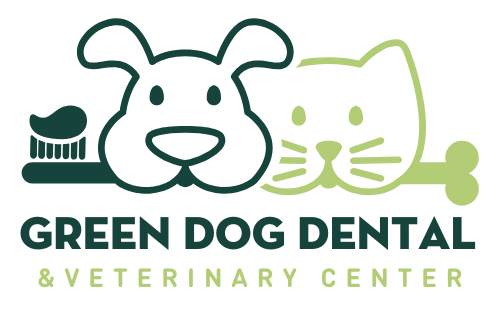What are some common dog allergies?
Among the most common dog allergies are environmental allergies, similar to humans. These could include pollen in the air or dust in the environment. Other allergens can be found in food, and many dogs also suffer from flea allergy dermatitis. In some cases, even a single flea bite can cause a systemic reaction in dogs with a hypersensitivity to fleas, despite being on flea medication.
Dr. Heather Rally
Green Dog Dental & Veterinary Center
How do allergies impact the health and well-being of dogs?
Allergies can cause dogs to be very uncomfortable and may even lead to more serious health concerns. Dogs with severe allergies may constantly lick and scratch themselves, resulting in hot spots on the skin and secondary bacterial infections. Additionally, allergies can lead to ear infections and dermatitis in dogs.
What are some signs or symptoms of allergies in dogs?
Common signs of allergies in dogs include ear infections, chewing at the paws, and salivary staining on the fur (especially for white dogs). Other signs of general itchiness may also be present, such as scratching or licking themselves.
Can I diagnose my dog's allergies at home myself?
While you can observe and take note of your dog's allergy symptoms, it is important to bring your dog to a veterinarian for a proper diagnosis. The information you provide about your dog's symptoms and habits will be helpful for the veterinarian to determine the cause of the allergies and recommend treatment options.
How will a veterinarian diagnose allergies?
Veterinarians typically diagnose allergies through a physical exam, looking for common signs and symptoms. They may also try a trial of allergy medication to see if it helps, or recommend a food elimination diet trial if a food allergy is suspected. In more complicated cases, a veterinarian may refer you to a dermatologist for further evaluation.
Are there shampoo therapies you could use for dog allergies?
Some shampoos can help alleviate allergy symptoms in dogs, particularly if they are experiencing secondary dermatitis or bacterial infections. Shampoos containing soothing compounds can help dogs with dry, flaky skin caused by chronic allergies. While shampoo may not cure the allergy, it can be included in a comprehensive therapeutic plan.
What is hyposensitization or desensitization therapy for dog allergies?
Hyposensitization or desensitization therapy involves gradually introducing small doses of the allergen to your dog's system to help them become less sensitive to it. This process can reduce or even eliminate allergy symptoms in some cases. However, it typically requires referral to a veterinary allergist and a definitive identification of the allergen.
Do dogs suffer from seasonal allergies?
Yes, dogs can suffer from seasonal allergies, similar to humans. Symptoms may come and go throughout the year, particularly if they are related to pollen or other seasonal allergens.
How are allergies in dogs different from allergies in humans?
While some allergy symptoms are similar between dogs and humans, dogs may experience unique symptoms such as recurrent ear infections and paw chewing. These symptoms may not be immediately recognized as allergy-related by dog owners, as they are not as common in humans.
What are the most common treatments for dog allergies?
Common treatments for dog allergies include desensitization therapy, food elimination diet trials, medication to control symptoms, and treating any secondary infections (such as ear infections). The specific treatment plan will depend on your dog's individual needs and the cause of their allergies.
What kind of medicines are safe for dogs with allergies?
Some medications such as Benadryl can be safely used for dogs with allergies, though they may not be as effective as they are for humans. Other medications that interact differently with a dog's immune system may be more effective for controlling allergy symptoms. Your veterinarian will discuss the best options for your dog based on their specific needs.
Is there anything I need to do in my home environment for my dog's allergies?
Maintaining a clean and sanitary home environment can help reduce allergens for dogs with environmental allergies. This may include using air purifiers to control airborne allergens, and ensuring your dog has access to fresh air. Regular cleaning and dusting can also help minimize allergens in the home.
If you still have other questions and you'd like to reach out to us, you can call us directly at (310) 606-2407, or you can email us at [email protected]. But please do reach out, and we'll get back to you as fast as we can. Don't forget to follow us on social media https://www.facebook.com/GreenDogDental/, https://www.instagram.com/greendogdentalvet/
